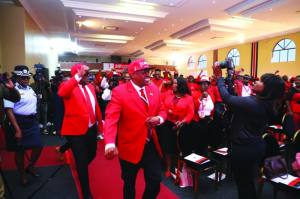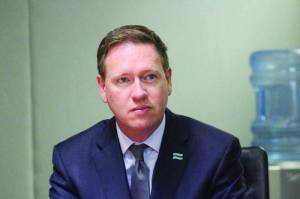Some are still regarded as heroes and heroines in the field of HIV and AIDS, especially for their bravery and total self-sacrifice in the fight against stigmatisation.
Their efforts were centred on combating HIV/AIDS misinformation and discrimination, years back when treatment was yet to be discovered.
Special mention must go to the then AIDS/STD Unit under the Ministry of Health that back then supported the ideas of the likes of David Ngele, Helen Ditsebe-Mhone, and Dipuo Bogatsu to form a support group for People Living with HIV (PLHIV). Overtime, Ngele would become the Chairperson of BONEPWA+ and later its National Coordinator, while Ditsebe-Mhone would then form an NGO, first as a support group, which in turn would become The Coping Centre for People Living with HIV and AIDS (COCEPWA).
COCEPWA would in the late 1990s become a fast-growing national support group whose mandate was to provide safety nets for PLHIVs who were yet to open up about their HIV-positive status. Capacity building in various themes such as the buddy building programme, Ms Stigma Free, as well as HIV and STD prevention, were core. The organisation grew in size in some districts with activities across the country and it also received a lot of funding from the Botswana government and international development partners.
However, with more funding coming in, the organisation developed a weakness in the lack of accountability for its financial resources as well as poor governance and leadership systems. Efforts were made by relevant stakeholders to approach the then leadership to swerve back the organisation to its intended mandate, but these bear no fruit due to the 'Founder Syndrome mentality' that had crept into the organisation’s systems.
In numbers and a perusal of the Registrar of Societies databank, it is evident that many CBOs and NGOs exist theoretically, but are nowhere to be seen on the ground. Several of them, including COCEPWA, have largely failed to sustain their governance systems and financial resources since they acquired this organisational disease called 'Founder Syndrome'.
Now all that remains of COCEPWA, are the old structures of what used to be group counselling centres. The lost heroes and heroines at least remain pioneering missionaries of the defunct movements.
Much of the trouble stems from the Founder Syndrome, where organisations are turned into pseudo-private entities without accountability and the requisite values ordinarily expected of organisations.
Weaknesses such as self-interest, as well as leadership and governance deficits and maladministration grow and strangle some organisations.
Hopefully, HIV activists are now seeing a reversal of the poor leadership and managerial deficit that has become a characteristic occurrence in some civil society organisations over the years.
However, NGOs in Botswana are still experiencing a decline in donor support and undefined government and private sector support. The decline in donor support is a result of the exit of major donors from Botswana. Donors are no longer willing to fund administrative costs such as personnel equipment. Those that remain have substantially reduced their support for various reasons, the top of which is the assumption that Botswana, as a middle-income country, has its own resources to meet development. The situation has harmed the participation and contribution of NGOs in national development and promotion of social welfare, especially in the PLHIV sector.
In the context of Botswana, NGOs lack clearly defined structures in terms of organisational charts, facilities, equipment and human resources. The major contributory factor to this is limited financial resources which impact NGOs ability to, plan organise and design clearly defined structures as well as equip their offices with adequate equipment and facilities. As noted by Molomo and Somolokae (1999), the key weakness of NGOs in Africa is the inappropriate organisational structures which impact how NGOs carry out their core business.
The establishment of the NGO Council in Botswana essentially took over the responsibility of BOCONGO and assumed the motherhood of civil society in Botswana. Even though it was derived from the newly developed NGO Policy meant to provide a framework to guide and nurture a cooperative relationship with government, and to address the sustainability of NGOs, the NGO Council has become the superstructure supervising the activities of NGOs and conducting itself as the mother umbrella body for civil society.
While the conceptual intention is good, in that the NGO Policy ideally represented government's commitment to work with NGOs as the relationship has been rather informal in the past, the reality, however, posits a different story.
For civil society to prosper and make the impact it was formed to, it must re-engineer and regain the moral high ground by rebuilding the kind of leadership acumen and capability as well as value-based ethos known in the sector. Civil society needs to reconnect with communities and focus on policy impact that responds to the needs of the poor. For civil society to realise its potential contribution and to efficiently manage its activities, a healthy relationship with government is essential. This healthy relationship can only be conceivable if both parties share the same objective.







